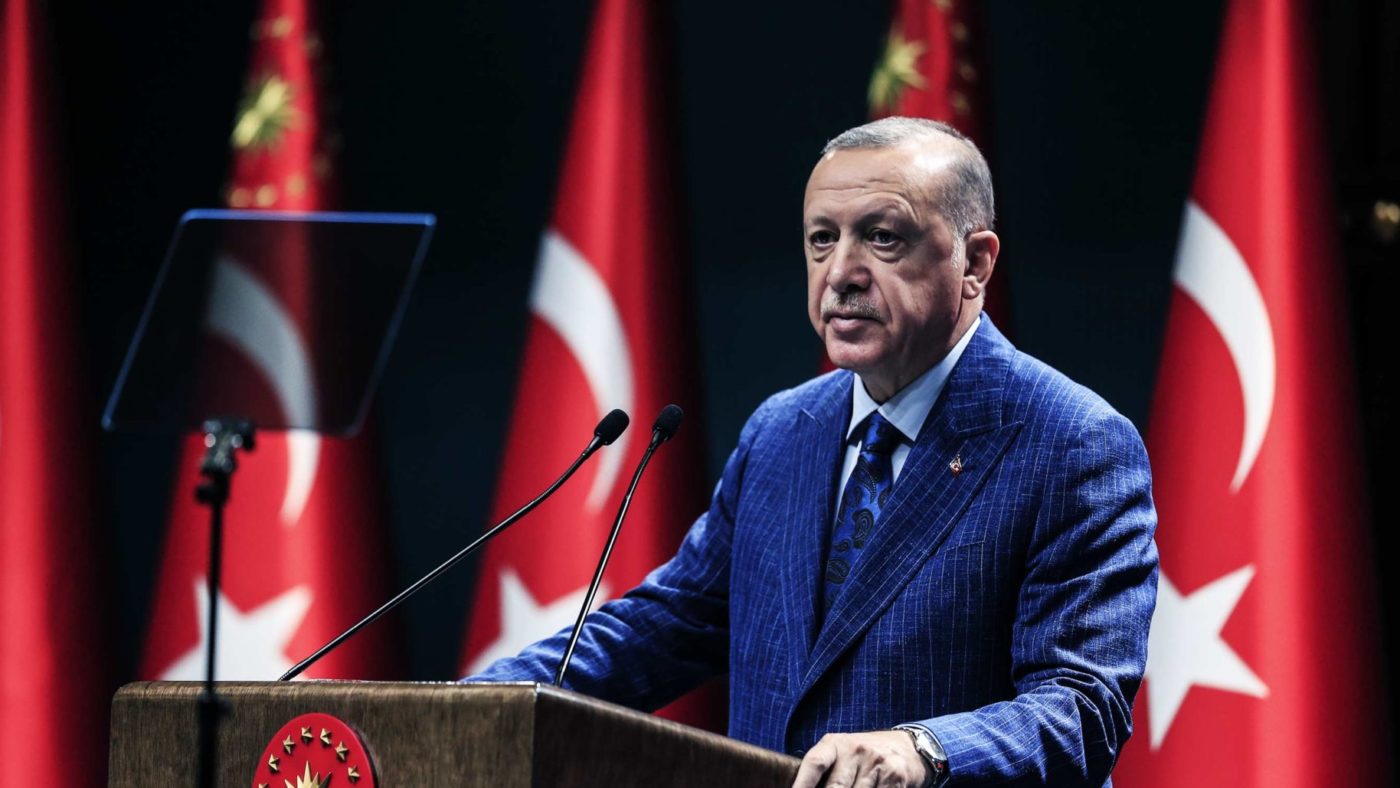“Democracy is like a bus-ride – once I get to my stop, I’m getting off,” once declared Turkish strongman Recep Tayyip Erdogan.
For some this was nothing but an off-the-cuff remark that did not reflect Erdogan’s real beliefs. Until recently, European leaders sincerely held the view that, under his leadership, Turkey had a reformist government on a slow march into the club of Western liberal democracies. Whilst, commentators will argue over when exactly Erdogan hit the ‘stop’ button for Turkey and dragged his country off the bus, his destination is now abundantly clear.
Turkey is now a neo-Ottoman state, led by an authoritarian Sultan, with an increasingly Islamised political culture and a growing contempt for basic freedoms. Not satisfied with throwing democracy, freedom, and secular values to the wind, Erdogan has set about bombing refugees in Iraq, importing jihadists to destabilise Syria, and abandoning liberal allies in favour of colluding with a circus of pariahs. What’s more, Turkey have now turned their attention to illegally gun-running in Libya, stoking the flames of the long-running civil war.
“Turkey has launched Operation Claw-Eagle against terrorists in northern Iraq, the Defense Ministry announced,” crowed the state-owned Anadolou Agency recently. What they are less proud to reveal is that among the ‘terrorists’ they have killed are shepherds in the hills of northern Iraq: Yazidis struggling to put their lives back together after suffering genocide at the hands of ISIS, and refugees taking shelter in a UN-sponsored camp in Makhmour. If imitation is the sincerest form of flattery, then Syria’s Bashar al-Assad must be blushing at this most effusive tribute.
Ankara has joined the ongoing power-struggle in Libya on the side of the Muslim Brotherhood-linked Government of National Accord against General Haftar’s Libyan National Army. The French Foreign Legion are well-known for granting French citizenship to any soldier who sheds blood for the Republic. Erdogan has established his own twisted version to recruit jihadists overseas, dangling the tantalising promise of Turkish citizenship for those who battle for him in Libya and elsewhere. Erdogan’s fighters belong to the Syrian National Army, member groups of which include such jihadist outfits as Jaish al-Islam, known for torturing and imprisoning people without trial and using their captives as human shields. More egregiously, these jihadist foreign legionaries are armed with Turkish weapons illegally smuggled past a UN-agreed arms embargo, to which Turkey itself was a signatory.
Despite clashing in Syria, Turkey is building an alliance with Iran, and the pair are supporting Qatar in defying the Gulf Cooperation Council over Doha’s support for the Muslim Brotherhood. This emerging axis constitutes a group of nations who, having incurred indignant condemnation from the international community for their destabilising activities, have been able to find solace in each other’s company. The fruits of this union are yet to be seen, but they will inevitably include Iraq and Syria being used as training grounds and colonial projects, a conspiracy to destroy any attempts by the Kurds to live free from terror and violence, and a long-term project to become the quiet influencing hand behind a new Islamist regime in Tripoli.
The embers of the West’s hope for reconciliation between Turkey and the liberal democratic order are dying. They may not yet be extinguished, but they will require an earnest endeavour from Western leaders to keep them alight, and, even then, these hopes will hinge on reciprocation from Ankara. The bus is still at the stop, but what will it take to convince Erdogan to get back on?
Click here to subscribe to our daily briefing – the best pieces from CapX and across the web.
CapX depends on the generosity of its readers. If you value what we do, please consider making a donation.


